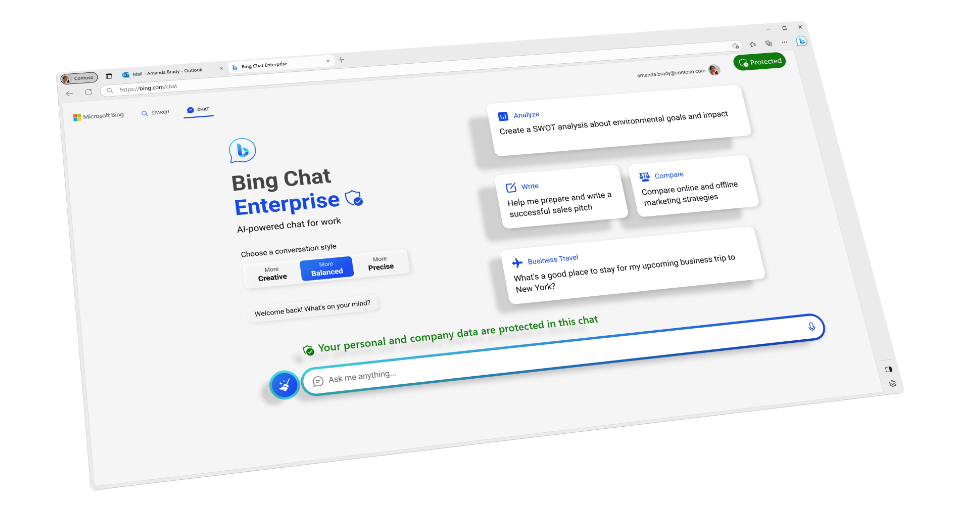Welcome to the world of cognitive computing! 🚀
Get ready to dive into the top 10 real-world use cases, where we’ll explore the incredible impact of this cutting-edge technology across various industries.
We’ll provide you with examples, programming codes, facts, and figures to help you gain a deeper understanding of how cognitive computing is revolutionizing our world.
So buckle up, and let’s get started! 😉
Healthcare: Improved Patient Outcomes
Cognitive computing has been making waves in healthcare by providing personalized treatment plans and improving patient outcomes.
For example, IBM’s Watson for Oncology helps physicians make evidence-based treatment recommendations by analyzing medical records and identifying potential treatments.
In a study conducted at the Manipal Comprehensive Cancer Center, Watson’s recommendations were in line with experts’ opinions in 93% of cases. 🏥
Retail: Enhanced Customer Experience
Retailers are using cognitive computing to offer highly personalized shopping experiences.
For example, Neiman Marcus’ mobile app uses visual recognition technology to help customers find similar products by simply taking a picture. This has led to a significant increase in customer engagement and sales. 🛍️
Manufacturing: Smart Factories
Cognitive computing plays a crucial role in smart manufacturing by enabling predictive maintenance, quality control, and supply chain optimization.
For instance, Siemens uses a cognitive computing system to monitor and analyze production data, resulting in a 50% reduction in machine downtime. 🏭
Education: Personalized Learning
Cognitive computing is transforming education by providing personalized learning experiences.
For example, Carnegie Learning’s MATHia software uses cognitive computing to analyze student performance and provide tailored feedback, resulting in a 50% increase in algebra proficiency. 📚
Finance: Fraud Detection and Risk Management
Financial institutions are leveraging cognitive computing for fraud detection and risk management.
For instance, PayPal uses machine learning algorithms to analyze transactions in real-time and identify suspicious activity, preventing $25 million in potential fraud annually. 💳
Human Resources: Talent Acquisition and Retention
Cognitive computing is revolutionizing talent acquisition by automating the recruitment process and identifying the best candidates.
For example, Unilever uses AI-driven tools to screen resumes and video interviews, reducing the hiring process time by 75%. 😊
Marketing: Customer Insights and Engagement
Cognitive computing helps marketers gain deeper customer insights and develop targeted marketing campaigns.
For example, Coca-Cola uses AI-powered tools to analyze social media data and identify trending topics, allowing them to create relevant content and improve engagement. 📈
Agriculture: Precision Farming
Cognitive computing is enabling precision farming by providing real-time insights into soil conditions, weather patterns, and crop health.
For example, John Deere’s Field Connect system uses sensors and machine learning algorithms to optimize irrigation and reduce water usage by 30%. 🚜
Transportation: Autonomous Vehicles
Cognitive computing is driving the development of autonomous vehicles by enabling real-time decision-making and route optimization.
For example, Waymo’s self-driving cars use cognitive computing to process data from sensors and cameras, enabling them to navigate complex environments safely.
In fact, Waymo’s autonomous vehicles have driven over 10 million miles on public roads, with a significantly lower accident rate compared to human drivers. 🚗
Entertainment: Content Recommendation and Personalization
Cognitive computing is revolutionizing the entertainment industry by providing personalized content recommendations.
For example, Netflix uses machine learning algorithms to analyze user preferences and viewing history, offering tailored suggestions that keep viewers engaged.
This has resulted in a 75% reduction in churn rate and an estimated $1 billion in annual savings due to increased customer retention. 📺
Conclusion
Cognitive computing is truly transforming the way we live and work, with the top 10 real-world use cases demonstrating its immense potential across various industries.
From healthcare to entertainment, cognitive computing is unlocking new possibilities, improving efficiency, and enhancing our lives.
As this technology continues to evolve, we can only expect even more incredible advancements in the future. So, let’s embrace the power of cognitive computing and look forward to a smarter, more connected world! 🌐
Remember to keep an eye on this space for more fascinating insights, examples, and discussions on the latest in cognitive computing and other cutting-edge technologies. Don’t forget to share this article with your friends and colleagues, because sharing is caring! 😉
Frequently Asked Questions (FAQs)
Cognitive computing refers to a subset of artificial intelligence (AI) that aims to replicate human thought processes by using machine learning, natural language processing, and advanced data analytics.
Unlike traditional computing, which relies on pre-programmed algorithms, cognitive computing systems can learn, reason, and adapt to new information, enabling them to make informed decisions and predictions.
This allows cognitive computing systems to tackle complex problems and provide more human-like interactions.
Cognitive computing has a significant impact on businesses by streamlining processes, improving decision-making, and enhancing customer experiences.
It allows organizations to automate repetitive tasks, analyze large volumes of data, and gain valuable insights that can drive innovation and growth.
Some common use cases include personalized marketing, fraud detection, smart manufacturing, and talent acquisition.
Cognitive computing has a wide range of applications across various industries, including healthcare, retail, manufacturing, education, finance, human resources, marketing, agriculture, transportation, and entertainment.
These industries benefit from cognitive computing by improving efficiency, reducing costs, and enhancing customer satisfaction.
Popular programming languages for cognitive computing include Python, R, Java, and C++. Python, in particular, is favored due to its readability, extensive libraries, and strong community support. Some commonly used tools and frameworks include TensorFlow, PyTorch, Scikit-learn, and IBM Watson.
Ethical concerns in cognitive computing primarily revolve around privacy, data security, accountability, and potential job displacement.
As these systems rely on large volumes of data, ensuring data privacy and security becomes crucial. Additionally, the decision-making processes of cognitive computing systems can sometimes be opaque, raising concerns about accountability and fairness.
Lastly, as cognitive computing automates various tasks, it may lead to job displacement, necessitating re-skilling and adaptation of the workforce.
Integrating cognitive computing into existing business processes involves identifying the most relevant use cases, selecting appropriate tools and technologies, and developing a strategy for implementation.
This may involve working with AI vendors, building an in-house team, or collaborating with external partners. It’s essential to ensure seamless integration with current systems, train employees, and establish a feedback loop for continuous improvement.
The future of cognitive computing is promising, with ongoing advancements in AI and related technologies. We can expect cognitive computing systems to become more accurate, efficient, and capable of handling increasingly complex tasks.
Additionally, as these systems become more accessible and affordable, their adoption across various industries will continue to grow.
This will result in more personalized experiences, improved decision-making, and increased efficiency across all sectors.
Thank you for reading our blog, we hope you found the information provided helpful and informative. We invite you to follow and share this blog with your colleagues and friends if you found it useful.
Share your thoughts and ideas in the comments below. To get in touch with us, please send an email to contactus@bindspacetech.com.
You can also visit our website – Bindspace Technologies


